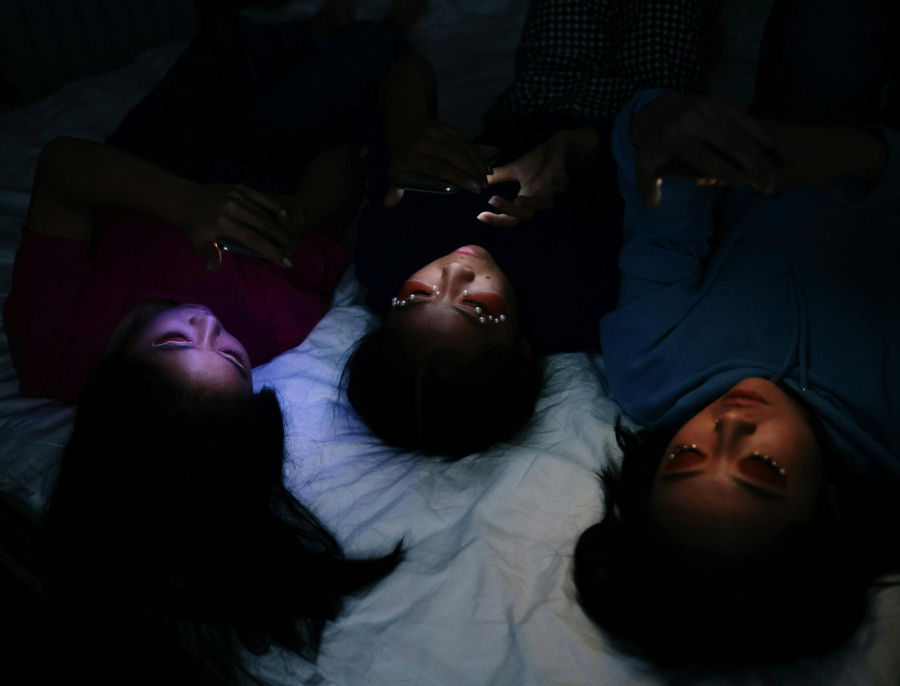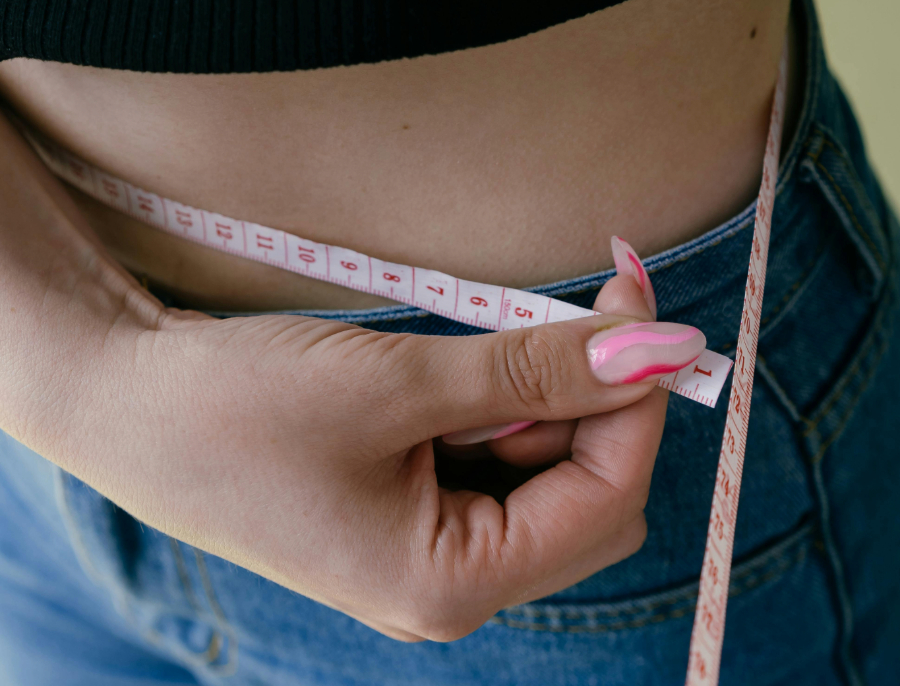Olivia Culpo, Kardashians, and Florence Pugh: The ‘SHE MD’ Conversations Reshaping Women’s Health

Up until recently, women’s health, especially reproductive health, was a taboo topic—whispered about in hushed tones, if at all. Women suffered through debilitating pain, unexplained symptoms, and infertility struggles in silence, often dismissed by doctors who treated their concerns as overreactions. Today, the conversation has shifted dramatically. Celebrities are using their platforms to highlight reproductive health struggles, and shows like SHE MD ensure those conversations about women’s health reach the masses.
On SHE MD, hosted by Dr. Thaïs Aliabadi and Mary Alice Haney, some of the most high-profile women in entertainment have opened up about their deeply personal journeys with conditions like endometriosis, PCOS, and infertility. Olivia Culpo, Shailene Woodley, Kim Kardashian, Khloé Kardashian, Hannah Storm, Florence Pugh, and Gabby Bernstein shared their experiences, breaking the cycle of silence that plagued previous generations.
Olivia Culpo: From Dismissal to Diagnosis
For twelve years, Olivia Culpo endured excruciating pain that medical professionals brushed off. “I was told, ‘Painful periods are normal,’” she revealed. “One doctor even questioned whether I was wiping correctly.”
After seeing twelve doctors who all dismissed her suffering, she finally found Dr. Aliabadi, who diagnosed her with rectovaginal endometriosis—meaning endometrial tissue was growing between her vagina and rectum.
Culpo’s pain wasn’t just a minor inconvenience. “I physically could not function. The pain was so severe, it scared me.” She describes the feeling of hopelessness when no one could provide answers. But after receiving the right diagnosis, she became a fierce advocate, using her platform to help other women recognize that no, pain like that is not normal and deserves proper medical attention.
Shailene Woodley: Mysterious Illness & Reproductive Health Confusion
Shailene Woodley spent her twenties battling an unnamed illness. “I was losing my hearing, I couldn’t walk for longer than five minutes without needing to sleep for hours, and everything I ate hurt my stomach,” she recounted. While she doesn’t name the condition, her story is one many women know too well—the constant misdiagnosis, the frustration of conflicting information, and the endless search for answers.
“I was told I had PCOS, then endometriosis, then a tilted uterus, then a heart-shaped uterus,” she said. “Every single doctor gave me a different answer.” It wasn’t until she took matters into her own hands—learning about holistic health and advocating for herself—that she finally began to heal. Woodley’s story is a testament to how broken the system can be for women’s health and how taking control of your own body’s narrative can be a game-changer.
Kim Kardashian: Psoriasis & Reproductive Health
When most people think of Kim Kardashian, autoimmune diseases probably don’t come to mind. But for years, she’s battled psoriasis, which eventually progressed to psoriatic arthritis. “I remember waking up one day, and I couldn’t pick up my phone. My hands hurt that much,” she said. While psoriasis is primarily seen as a skin condition, it has deep ties to reproductive and immune health.
Psoriatic arthritis, like many autoimmune conditions, can have a major impact on fertility. Kim has been vocal about her difficult pregnancies and the challenges she faced carrying her children. Her transparency on SHE MD reminds us that even the most glamorous women in the world deal with serious health battles behind the scenes.
Khloé Kardashian: The Emotional Toll of Infertility & Surrogacy
Khloé Kardashian, who hosts her own podcast Khloé in Wonder Land, opened up about the deep emotional challenges she faced while bringing her son, Tatum, into the world via surrogacy. After welcoming her daughter, True, naturally, Khloé faced heartbreaking difficulties in conceiving a second child. When doctors told her surrogacy was her best option, she struggled to process the reality of carrying a child in a way that felt so different from her first pregnancy.
During the podcast, Khloé revealed that she remained emotionally detached throughout the surrogacy process. “I admittedly buried my head in the sand. The whole pregnancy, I couldn’t really face it,” she shared. Unlike her pregnancy with True, which she described as deeply connected, she felt an unexpected detachment from Tatum before his birth.
Khloé also spoke about the added stress of personal circumstances surrounding her pregnancy. Just weeks after moving forward with the embryo transfer, she discovered that her ex, Tristan Thompson, was expecting a baby with another woman. “I never told my family about the transfer. I wasn’t going to tell anyone until it took because I wanted to surprise everyone. So no one knew except for Dr. A,” she explained. The emotional weight of the betrayal made it even harder for her to connect with her pregnancy.
Even after Tatum’s birth, it took time for Khloe to feel her anticipated bond. “When Dr. A placed him on my chest for skin-to-skin, my face—which we filmed for The Kardashians—looked blank. I was in sensory overload. I just couldn’t believe this was happening,” she said. Eventually, that connection developed, and today, she describes herself as completely in love with her son.
Her honesty about the reality of surrogacy challenges the romanticized narrative often portrayed in media. “I was so scared to be honest about it, but the response from women who have gone through the same thing was overwhelming. So many people said, ‘Thank you, because no one admits this,’” she said. Khloe’s story is a reminder that surrogacy, while an incredible option for many, comes with its own set of emotional complexities that deserve recognition and support.
Hannah Storm: Championing Reproductive Health for Female Veterans
Hannah Storm, the legendary ESPN anchor, has made it her mission to advocate for female veterans who struggle to access reproductive healthcare. “It’s so hard for disabled women to get gynecological care,” she stated. “There are so few facilities that are truly wheelchair-accessible. And insurance? Forget it.”
Storm, who is a breast cancer survivor, knows firsthand how critical early detection and proactive care are to women’s health. Through her work, she’s ensuring that women—especially those who’ve served our country—are not left behind in the fight for equitable healthcare. (That we even have to fight for healthcare at all in this country is another story for another day…)
Florence Pugh: The PCOS Diagnosis That Changed Everything
Florence Pugh had no idea she had polycystic ovary syndrome (PCOS) until a routine check-up changed her life. “In England, we don’t really see gynecologists unless there’s a problem,” she explained. But after some unusual symptoms, she sought answers and was diagnosed with PCOS and endometriosis at 27.
“I never assumed I’d have fertility issues. My mom and grandmother had babies into their forties,” she said. “But then I was told I needed to freeze my eggs now.” The diagnosis was a wake-up call, prompting Pugh to become proactive about her reproductive health. She now encourages young women to get checked out before trying to conceive.
Gabby Bernstein: Trauma, Fertility & The Mind-Body Connection
Gabby Bernstein knows all too well how trauma manifests in the body (it’s a lot of what she talks about on her podcast, Dear Gabby). “I had childhood trauma that I never really dealt with,” she said. “And it wasn’t until I started trying to conceive that I realized how much it had impacted my body.”
Her fertility struggles were intertwined with unresolved PTSD, and she credits therapy and spiritual healing for helping her move forward. “We don’t talk enough about how trauma can impact fertility,” she said. “But the body remembers, and until we heal from within, it can be really hard to move forward.”
Why These Conversations Matter
The stories women share on SHE MD are more than just cautionary tales—they are potent reminders that women’s health needs to be taken seriously. Too often, women are gaslighted by doctors, dismissed by insurance companies, or made to feel like they’re “overreacting.” But as these women have shown, advocating for yourself, demanding answers, and breaking the silence is the only way forward with women’s health.
A necessary caveat: While Dr. A is a medical professional and hosts SHE MD, this podcast is not a substitute for seeing your doctor. If something feels off, get checked out. If a doctor dismisses your pain, find another one. Most importantly, keep these conversations going—because the more we talk about reproductive health, the less power the stigma has.




















Leave a Reply